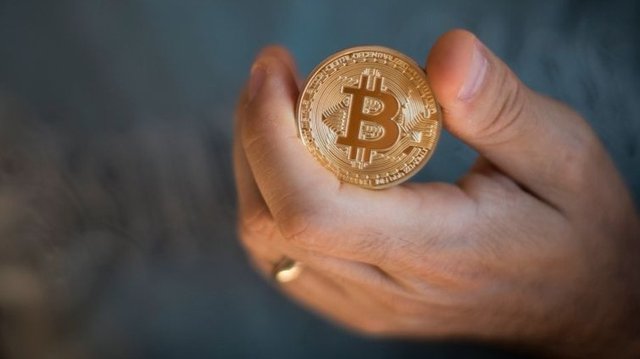That's why Bitcoin is more than just digital money

When people think of Bitcoin, they think of an online currency. But technology could also change the way we use the Internet - if it is used more as a digital infrastructure.
Bitcoin has long ceased to be a niche phenomenon. Initially only nerds and hackers were interested in it, the technology has now reached the center of society. This is shown, for example, by a representative survey from the spring of this year. According to the survey, which was designed by the Hamburg Blockchain Research Lab, Bitcoin is no longer a foreign word for almost 87 percent of Germans. And more than one in ten even has digital money.
But for people like mathematician Rene Pickhardt, the potential of Bitcoin is far from being exhausted: "Bitcoin is a technology with a great number of possible uses," he says. "But because too many people do not yet understand how to use it, it seems so complicated. Simply because it is new and unfamiliar." Pickhardt is currently writing his doctoral thesis at the Norwegian University of Technology. He wants to find out how to increase the effectiveness of Bitcoin so that you can use it to pay anywhere in the world in two seconds.
But paying is only the simplest application of Bitcoin technology, says Pickhardt: "What is underestimated is the fact that we can make contracts with Bitcoin. A simple contract, for example, is: I transfer five Bitcoin to you."
Hundreds of thousands of such simple contracts based on the Bitcoin infrastructure are already being concluded and processed worldwide every day. Digital money worth the equivalent of more than one billion dollars flows between different Bitcoin addresses every day. This is made possible by digital, cryptographic signatures with which agreements can be made securely and transparently on the Internet.
Thrown away a fortune
Even in court, messages signed with Bitcoin keys can play a role. In a lawsuit with his former business partner's brother, Australian Craig Wright, who claims to be the inventor of Bitcoin, has provided a list of Bitcoin addresses that he claims are his. A few weeks ago, however, a message appeared on the Internet that was signed with some of these keys. Her content: "Craig Steven Wright is a liar and a fraud. He does not have the keys to sign this message."
However, a decentralized solution also poses new problems. If Rene Pickhardt loses his BankID key, he goes to the bank and gets a new one straight away. At Bitcoin, lost keys have been a much bigger problem so far. Once lost, they are irretrievably gone - think of James Howells' 7500 bitcoins. The Welsh man gained notoriety because in 2013 he accidentally threw away the hard drive with the associated keys and thus access to a fortune equivalent to more than 64 million euros.
For mathematician Rene Pickhardt, however, this is not an unsolvable problem: Instead of entrusting your own back-up key to a bank, you could instead split it up cryptographically and split the individual parts between friends and relatives. To restore it, you would then only have to reassemble a minimum of these parts. It will take time, however, until such approaches are suitable for the masses. Bitcoin is still a very young technology.